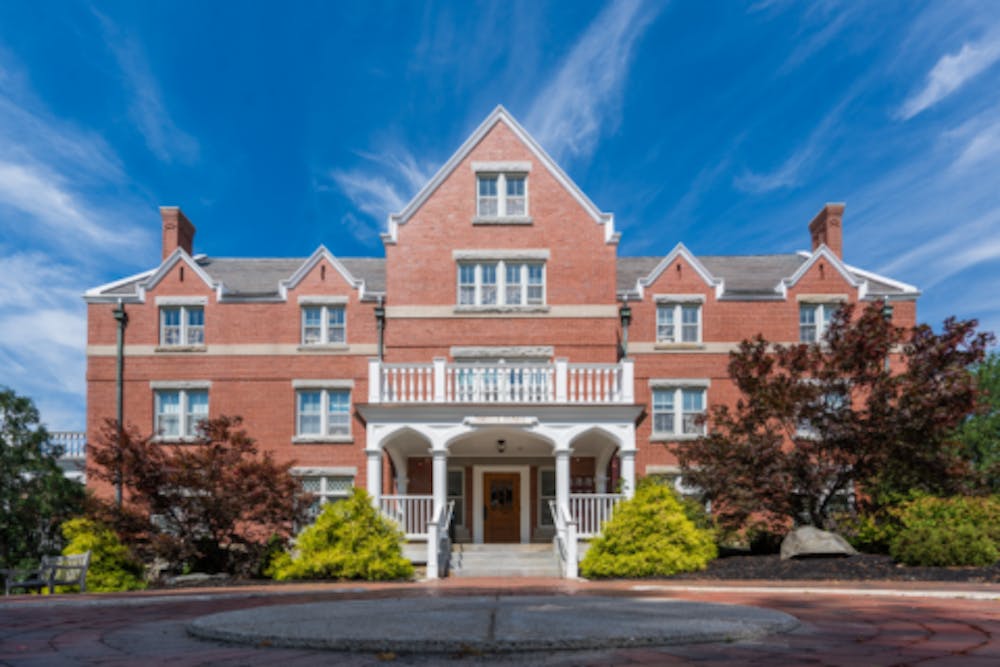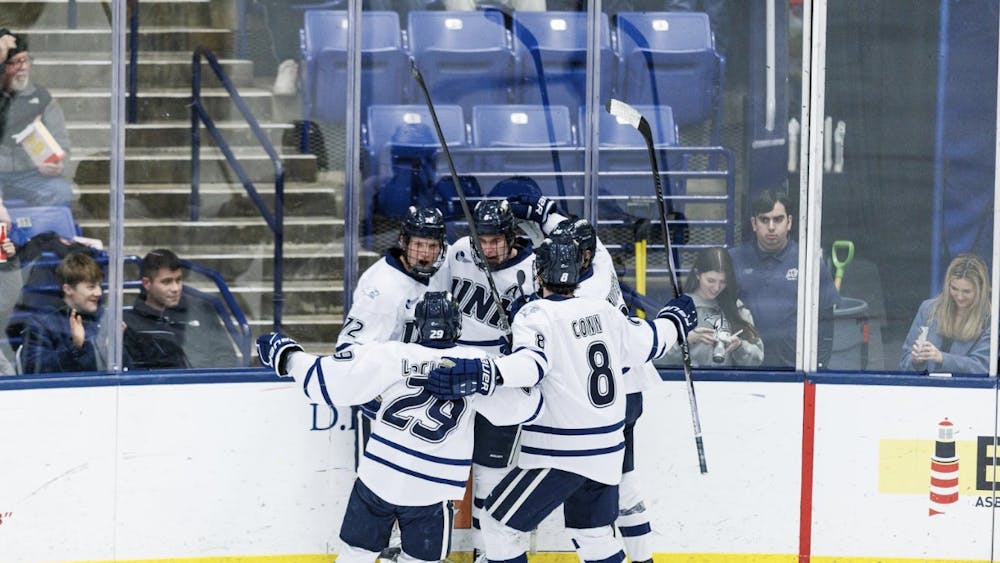DURHAM- As the academic year trudges toward its final leg, discussions on mental health in the wake of the pandemic and closing school year hover over students’ heads.
The ‘mid-semester slump,’ as it’s known to students, is the time before finals and is usually a period of mental drain and exhaustion for students. However, in the wake of the pandemic and changing mask mandates, is this year’s ‘slump’ any different than it was before?
Ben Meyer, a University of New Hampshire (UNH) sophomore, agrees with this statement. “After two years I think everyone is just really tired. Also, since the removal of masks there has been more illness going around that we haven’t seen in a while, like colds,” he said.
“Mask removal was a good thing overall,” said Meyer. “But it also scares people who are at risk, and I totally get that. It’s not a black and white topic.”
For Kami Peterson, a UNH junior and a resident assistant, the lifting of the mask mandate helped improve her mental health as she felt closer to her fellow students.
She went on to share her experience with mental health this year in the wake of a two-year long pandemic.
“I had to drop a class because it was so taxing on me mentally. Once I dropped the class it got better, and with the pandemic lightening up that helped too. It has been a tough year,” said Peterson.
UNH senior, Alyssa Daigle, gave her view on current student mental health. “This has been the first normal academic year since 2019, and I believe that has contributed to anxiety and depression rates. Also, we only get spring break as a vacation, compared to the fall. Professors assign a lot of work, and we kind of forgot what it was like to have school the right way,” said Daigle.
Dr. Michelle Leichtman, a professor of psychology, gave her perspective on current metal health among college students after two years of masks, social distancing and constant testing.
“Many college students found the pandemic particularly disruptive because in many cases it made it impossible to keep the same learning routines they previously had. College students experienced high levels of anxiety as their lives were disrupted in this way,” said Leichtman
She elaborated further on this, saying, “Being isolated or having restricted social interactions has been very hard, particularly for people already in stressful relationships, experiencing financial stresses or at a stage in life where their focus is on branching out.”
These stresses are worsened as students struggle to rapidly adjust to the changing circumstances of the pandemic. “Constantly adjusting to new ways of doing things can be valuable, but also tiring,” she said.
Dr. Elisa Bolton, the director of the Psychological and Counseling Services (PACS) at UNH, shared that they have seen “an increase in students struggling with feeling anxious in social situations, with a lack of motivation, and academic distress. We have also seen a moderate increase in student distress across other areas of concern, including depressed mood, relationship distress, and family distress.”
The "slump” some students are feeling is in part due to the normal losing of steam most students feel around this time of year. However, the pandemic fatigue combined with peoples’ overall decreased energy is making them feel more fatigued than usual. “Our reserves are simply somewhat depleted,” she said.
While students strive to make it through the school year and head back to a regular school environment, it is clear there will be struggles along the way as UNH transitions.
“It’s definitely getting better,” said Meyer, “We just have to keep pushing through.”
Support is provided by the University of New Hampshire to any student who is struggling through this time of change via Psychological and Counseling Services. PACS is open Monday through Friday from 8 A.M. to 5 P.M. Appointments can be made by calling (603)-862-2090.
Photo courtesy of the University of New Hampshire.
The ‘mid-semester slump,’ as it’s known to students, is the time before finals and is usually a period of mental drain and exhaustion for students. However, in the wake of the pandemic and changing mask mandates, is this year’s ‘slump’ any different than it was before?
Ben Meyer, a University of New Hampshire (UNH) sophomore, agrees with this statement. “After two years I think everyone is just really tired. Also, since the removal of masks there has been more illness going around that we haven’t seen in a while, like colds,” he said.
“Mask removal was a good thing overall,” said Meyer. “But it also scares people who are at risk, and I totally get that. It’s not a black and white topic.”
For Kami Peterson, a UNH junior and a resident assistant, the lifting of the mask mandate helped improve her mental health as she felt closer to her fellow students.
She went on to share her experience with mental health this year in the wake of a two-year long pandemic.
“I had to drop a class because it was so taxing on me mentally. Once I dropped the class it got better, and with the pandemic lightening up that helped too. It has been a tough year,” said Peterson.
UNH senior, Alyssa Daigle, gave her view on current student mental health. “This has been the first normal academic year since 2019, and I believe that has contributed to anxiety and depression rates. Also, we only get spring break as a vacation, compared to the fall. Professors assign a lot of work, and we kind of forgot what it was like to have school the right way,” said Daigle.
Dr. Michelle Leichtman, a professor of psychology, gave her perspective on current metal health among college students after two years of masks, social distancing and constant testing.
“Many college students found the pandemic particularly disruptive because in many cases it made it impossible to keep the same learning routines they previously had. College students experienced high levels of anxiety as their lives were disrupted in this way,” said Leichtman
She elaborated further on this, saying, “Being isolated or having restricted social interactions has been very hard, particularly for people already in stressful relationships, experiencing financial stresses or at a stage in life where their focus is on branching out.”
These stresses are worsened as students struggle to rapidly adjust to the changing circumstances of the pandemic. “Constantly adjusting to new ways of doing things can be valuable, but also tiring,” she said.
Dr. Elisa Bolton, the director of the Psychological and Counseling Services (PACS) at UNH, shared that they have seen “an increase in students struggling with feeling anxious in social situations, with a lack of motivation, and academic distress. We have also seen a moderate increase in student distress across other areas of concern, including depressed mood, relationship distress, and family distress.”
The "slump” some students are feeling is in part due to the normal losing of steam most students feel around this time of year. However, the pandemic fatigue combined with peoples’ overall decreased energy is making them feel more fatigued than usual. “Our reserves are simply somewhat depleted,” she said.
While students strive to make it through the school year and head back to a regular school environment, it is clear there will be struggles along the way as UNH transitions.
“It’s definitely getting better,” said Meyer, “We just have to keep pushing through.”
Support is provided by the University of New Hampshire to any student who is struggling through this time of change via Psychological and Counseling Services. PACS is open Monday through Friday from 8 A.M. to 5 P.M. Appointments can be made by calling (603)-862-2090.
Photo courtesy of the University of New Hampshire.













